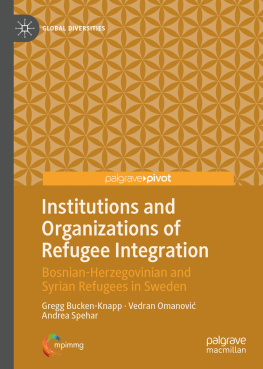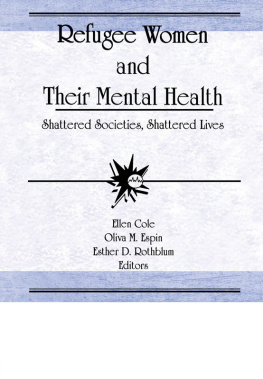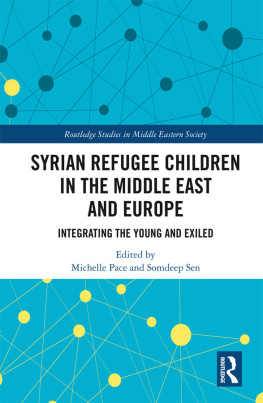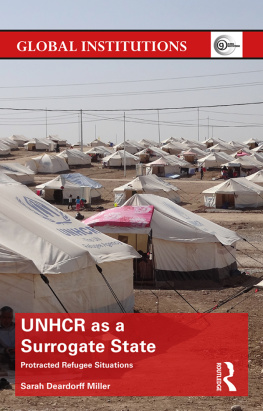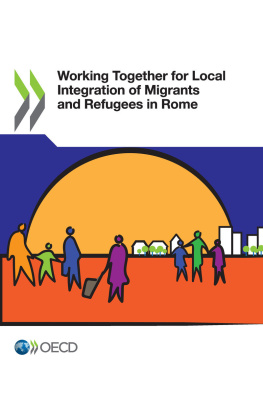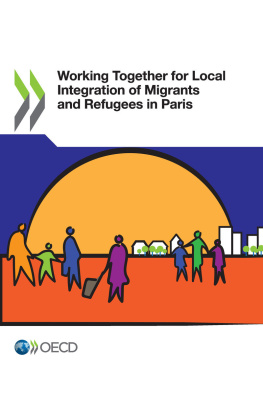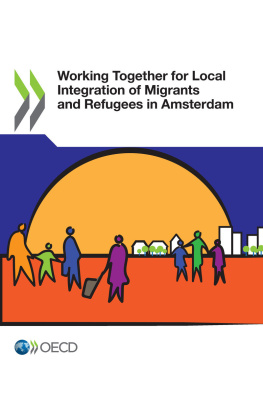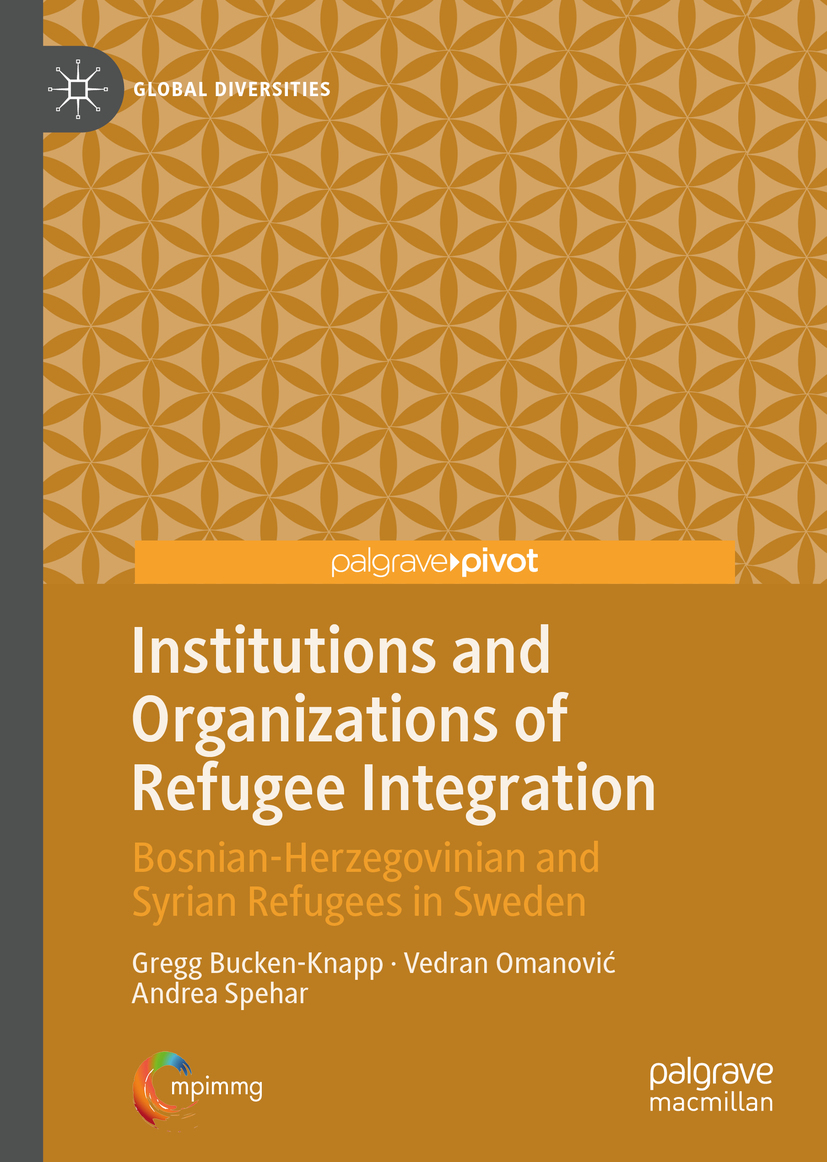Global Diversities
Series Editors
Steven Vertovec
Department of Socio-Cultural Diversity, Max Planck Institute for the Study of Religious and Ethnic Diversity, Gttingen, Germany
Peter van der Veer
Department of Religious Diversity, Max Planck Institute for the Study of Religious and Ethnic Diversity, Gttingen, Germany
Ayelet Shachar
Department of Ethics, Law, and Politics, Max Planck Institute for the Study of Religious and Ethnic Diversity, Gttingen, Germany
Over the past decade, the concept of diversity has gained a leading place in academic thought, business practice, politics and public policy across the world. However, local conditions and meanings of diversity are highly dissimilar and changing. For these reasons, deeper and more comparative understandings of pertinent concepts, processes and phenomena are in great demand. This series will examine multiple forms and configurations of diversity, how these have been conceived, imagined, and represented, how they have been or could be regulated or governed, how different processes of inter-ethnic or inter-religious encounter unfold, how conflicts arise and how political solutions are negotiated and practiced, and what truly convivial societies might actually look like. By comparatively examining a range of conditions, processes and cases revealing the contemporary meanings and dynamics of diversity, this series will be a key resource for students and professional social scientists. It will represent a landmark within a field that has become, and will continue to be, one of the foremost topics of global concern throughout the twenty-first century. Reflecting this multi-disciplinary field, the series will include works from Anthropology, Political Science, Sociology, Law, Geography and Religious Studies. While drawing on an international field of scholarship, the series will include works by current and former staff members, by visiting fellows and from events of the Max Planck Institute for the Study of Religious and Ethnic Diversity. Relevant manuscripts submitted from outside the Max Planck Institute network will also be considered.
More information about this series at http://www.palgrave.com/gp/series/15009
Gregg Bucken-Knapp
School of Public Administration, University of Gothenburg, Gothenburg, Sweden
Vedran Omanovi
Department of Business Administration, University of Gothenburg, Gothenburg, Sweden
Andrea Spehar
Department of Political Science and Centre on Global Migration (CGM), University of Gothenburg, Gothenburg, Sweden
ISSN 2662-2580 e-ISSN 2662-2599
Global Diversities
ISBN 978-3-030-27248-7 e-ISBN 978-3-030-27249-4
https://doi.org/10.1007/978-3-030-27249-4
The Editor(s) (if applicable) and The Author(s), under exclusive license to Springer Nature Switzerland AG 2020
This work is subject to copyright. All rights are solely and exclusively licensed by the Publisher, whether the whole or part of the material is concerned, specifically the rights of translation, reprinting, reuse of illustrations, recitation, broadcasting, reproduction on microfilms or in any other physical way, and transmission or information storage and retrieval, electronic adaptation, computer software, or by similar or dissimilar methodology now known or hereafter developed.
The use of general descriptive names, registered names, trademarks, service marks, etc. in this publication does not imply, even in the absence of a specific statement, that such names are exempt from the relevant protective laws and regulations and therefore free for general use.
The publisher, the authors and the editors are safe to assume that the advice and information in this book are believed to be true and accurate at the date of publication. Neither the publisher nor the authors or the editors give a warranty, express or implied, with respect to the material contained herein or for any errors or omissions that may have been made. The publisher remains neutral with regard to jurisdictional claims in published maps and institutional affiliations.
Cover image (c) Melisa Hasan
This Palgrave Pivot imprint is published by the registered company Springer Nature Switzerland AG.
The registered company address is: Gewerbestrasse 11, 6330 Cham, Switzerland
Acknowledgments
First and foremost, the authors wish to thank all the respondents who took the time to share their stories with us for this project. Without their willingness to lend their voices to our research, there would clearly have been no book. And more importantly, there would not have been the opportunity for others to learn about the crucial insights into the integration process that refugees to Sweden can contribute.
We also wish to thank Zainab Fakih and Kristin Franke Bjrkman for conducting and transcribing interviews for the chapter on Syrian refugees, FORTE (Swedish Research Council for Health, Working, Life and Welfare) for their financing to the programs The Challenges of Polarization on Swedish Labour Market and Organising Labour Market Integration of Immigrants, which provided Vedran Omanovi with the necessary time to conduct this research. Students in the University of Gothenburg School of Public Administration MA course Managing Migration from Entry to Integration also deserve thanks. Seminars and discussions with them provided much of the inspiration for chapter three, The Voices of Refugees as a Method. We also thank colleagues at the Department of Business Administration and the Department of Sociology, University of Gothenburg, for their comments and suggestions at the seminars where draft portions of the book were presented and discussed.

